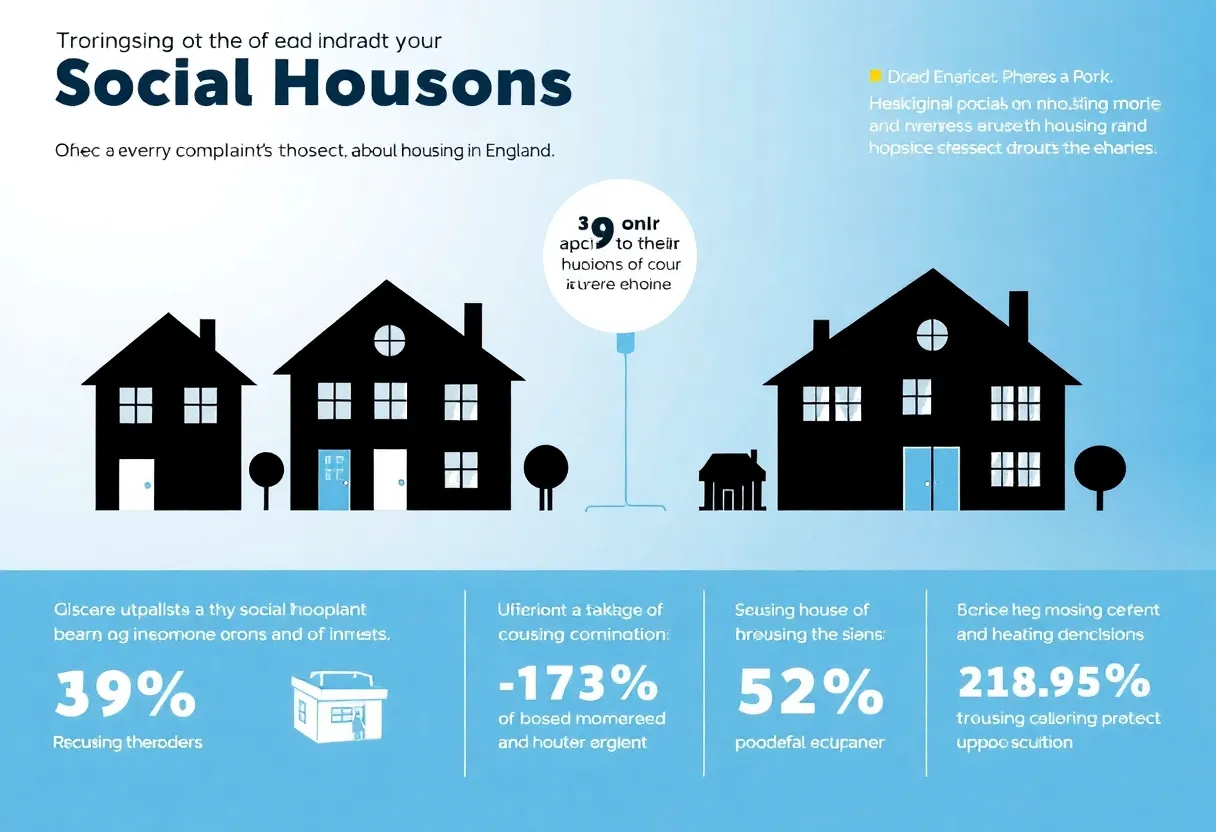News Summary
A staggering 474% increase in complaints about substandard living conditions within social housing in England signals a deepening crisis that necessitates urgent reform.
Soaring Complaints Highlight England’s Housing Crisis
A staggering 474% increase in complaints about substandard living conditions within social housing in England has been reported over the course of just five years, from 2019/20 to 2024/25. The Housing Ombudsman has sounded the alarm, pointing to a troubling imbalance of power in the relationship between landlords and tenants, which could have dire consequences for the future of social housing.
The Underlying Issues
Poor housing conditions have increasingly become a flashpoint for social unrest, with the Ombudsman warning that the simmering anger of tenants could lead to potential social disquiet. This dire situation signals that, without immediate interventions, England risks entering a phase of managed decline in social housing. The complexity of the issue is underscored by common complaints, which range from asbestos and electrical safety hazards to pest control issues, leaks, dampness, and mould infestations.
The general condition of social housing is becoming a growing concern, as long repair times are driving a wedge between tenants and landlords, resulting in a significant breakdown of trust. Contributing factors such as ageing homes, rising material costs, and a shortage of skilled workers are exacerbating this crisis, leaving many tenants feeling neglected and frustrated.
A Deepening Crisis
According to the Ombudsman, the last year saw an investigation into an alarming 6,380 complaints—up from just 1,111 complaints in the year to March 2020. Especially alarming is that repairs account for approximately 45% of these complaints. A staggering 1.5 million children are living in non-decent homes across England, with 19% of them residing in social housing. This shocking reality points to a systemic failure that not only affects comfort but also has significant implications for public health, community cohesion, and economic productivity.
Despite social landlords investing a record £9 billion in repairs between 2023 and 2024, historic underfunding looms large, creating a paradox where councils are forced to choose between running Housing Revenue Accounts (HRAs) into deficit or risking their obligations under the upcoming Awaab’s Law. Amid these systemic failures, poor communication from landlords has been described as lacking the dignity and respect that tenants deserve.
The Need for Change
The Local Government Association (LGA) has warned that the current state of social housing is becoming increasingly unsustainable. Councillor Adam Hug outlined the tough choices facing councils in addressing these issues while adhering to increasingly stringent laws like Awaab’s Law.
In light of these concerning developments, the Ombudsman has called for a transformative overhaul of the existing housing system, which includes a comprehensive review of funding practices. A critical proposal suggests the establishment of a national tenant body aimed at enhancing tenant representation and ensuring their voices are heard more effectively in decision-making processes.
Lessons from the Past
The tragedies of the past, such as the Grenfell Tower fire and the untimely death of Awaab Ishak, raise urgent questions about housing standards. These events highlight the human cost of neglecting housing repairs, where cases of poor practices include a child’s bedroom window being boarded up for four years and unaddressed ceilings with asbestos. Instances of severe inconvenience have been reported, like tenants with disabilities being left without functional toilets.
Housing campaigners are increasingly vocal about the feelings of disenfranchisement among social housing residents, who feel treated merely as “rental figures.” The National Housing Federation has echoed the pressing need for quality and safety in housing, but acknowledges that years of funding cuts have only aggravated the crisis.
A Comprehensive Response
In a bid to address these long-standing issues, the government has announced plans to introduce Awaab’s Law in October, focusing on urgently needed repairs. However, the implementation will be phased, especially for hazardous situations like asbestos management. The Housing Ombudsman has emphasized that a cultural shift in the landlord-resident dynamic is essential to rebuild trust and accountability.
There is a pressing need for advancements in housing maintenance through predictive models, improved communication channels, and a strict code of conduct for staff. Without such measures, the future of social housing in England may be at risk, resulting in long-term consequences for communities and the individuals residing in them.
Deeper Dive: News & Info About This Topic
HERE Resources
Pending Asbestos Report Delays Renovation Decision for Historic Lancaster Building
Philadelphia School District Delays Crucial Vote on DOJ Agreement Over Asbestos Concerns
Recent Developments in Mesothelioma and Asbestos Litigation
The School District of Philadelphia Faces Federal Scrutiny Over Asbestos Management
Clinic That Helped Libby Mesothelioma Survivors Shuttered Amid Legal Battles
Philadelphia School District Faces Federal Scrutiny Over Asbestos Management
Developments in Mesothelioma Vaccine Research
Contamination Concerns at Crossford Building Site Addressed
Unseen Dangers: The Truth About U.S. Building Materials That Still Pose Risks
Groundbreaking Research Unveils Genetic Links Between Asbestos Exposure and Mesothelioma



















